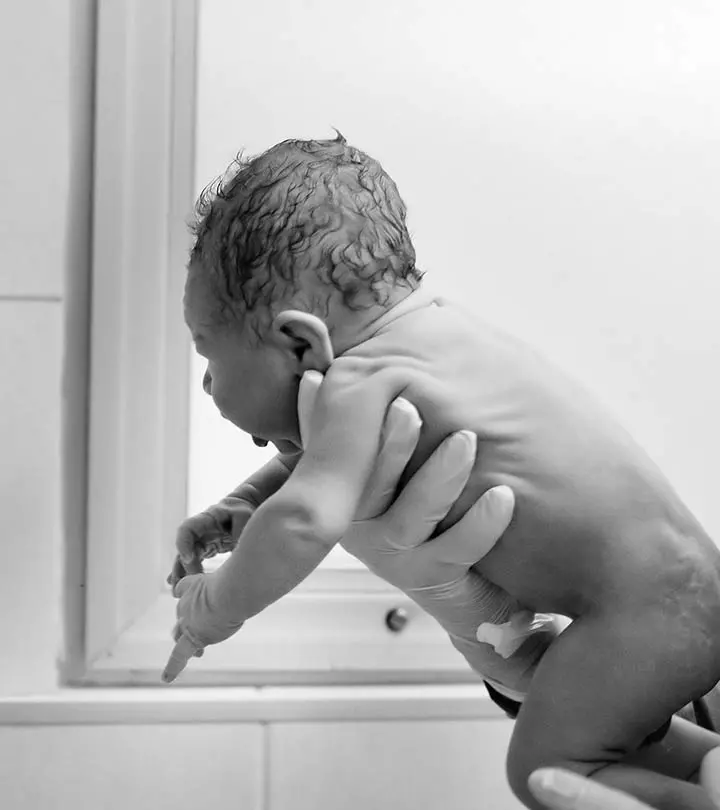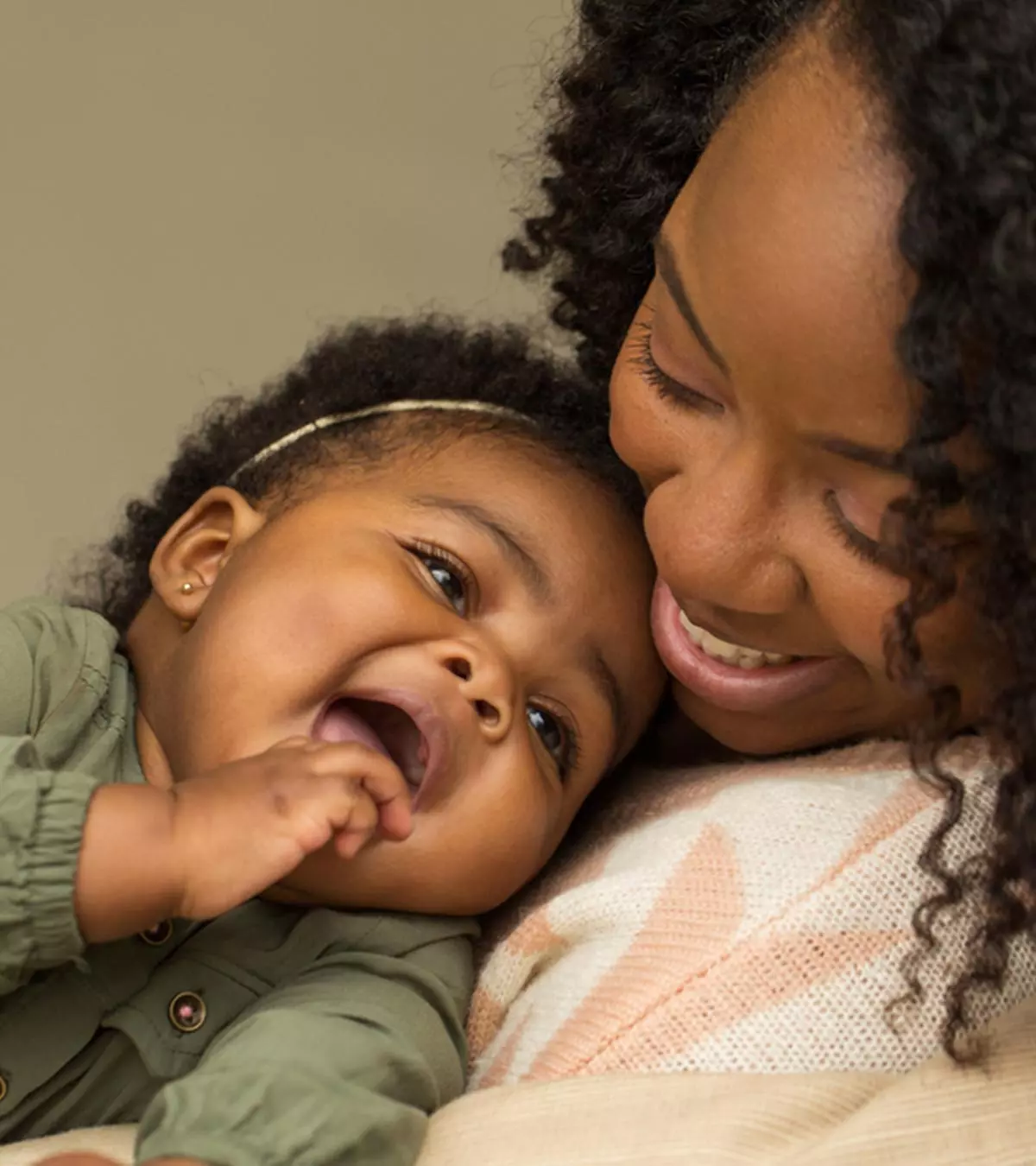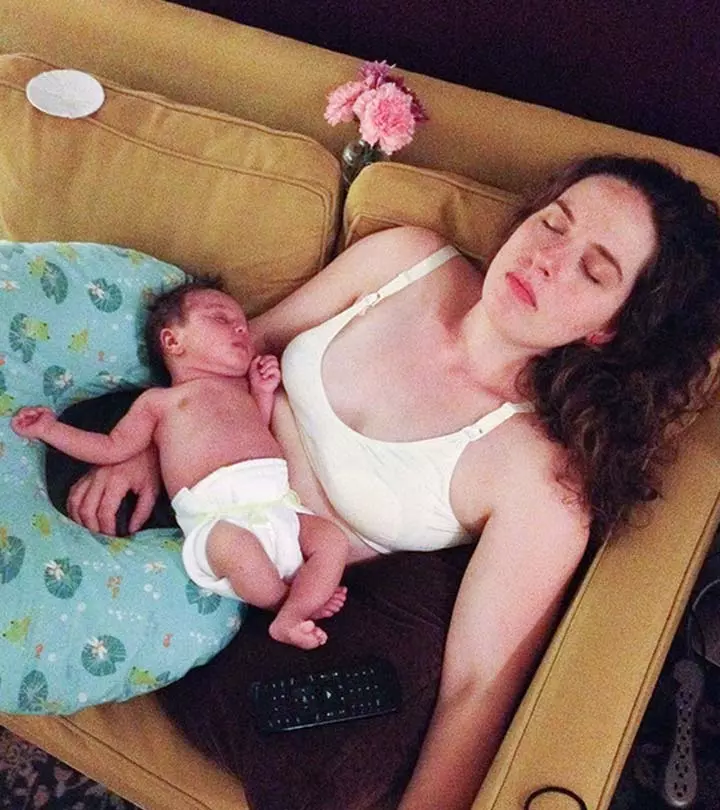

Image: iStock
Sarah Erzen of Holt, Michigan, has an incredible story of surviving cancer at the time of pregnancy and still be able to deliver her beautiful baby.
The 34-year-old mother of two was pregnant with her third child. During her pregnancy, she got a distress signal, and she felt a lump in her breast. While some women experience changes in the breast during pregnancy (and it is quite normal), Sarah instinctively felt something wasn’t right, and she decided to get it checked.
Her suspicions were not far from wrong. Sarah was diagnosed with stage-3 breast cancer. But she was lucky to get the treatment just in time. She was 26 weeks pregnant at the time of the treatment. She lost the breast but was still able to deliver a beautiful baby girl Adeline.
Today Adeline is almost two years old. Sarah is in remission. To know more about her incredible journey, watch the video below and also listen to Sarah’s important message for all other women.
It is interesting how some complicated pregnancies are successful only because of hope and courage. Cancer during pregnancy can be rather alarming. Did you know that cancer during pregnancy is a rare phenomenon? Read on to know more:
- Being pregnant during cancer is complicated and difficult to deal with for both the mother and the doctors.
- Diagnosing cancer during pregnancy is often delayed due to symptoms that might occur during the normal course of pregnancy. Symptoms of rectal bleeding, frequent headaches, abdominal bloating might be confused with quite frequent pregnancy symptoms.
- Due to its rare occurrence during pregnancy, both doctors and women were not aware for long as to how to deal with cancer during pregnancy. However, as more and more women are discussing with their doctors about receiving treatment for cancer during pregnancy, there is more information available on the same.
- Few tests that are done as part of the routine tests during pregnancy, for instance, the Pap test can determine cervical cancer.
- Ultrasound tests enable to determine ovarian cancer that might otherwise go undetected.
- A pregnant woman with cancer can have a healthy baby because the fetus is not directly affected by cancer.
- Some cancers can spread to the placenta. However, most cannot
The most common types of cancer that occur during pregnancy are those with more incidence in younger people. Breast cancer, thyroid cancer, cervical cancer, melanoma, Hodgkin lymphoma, non-Hodgkin lymphoma and a gestational trophoblastic tumor that rarely occurs in the female reproductive system are few examples.
- Breast cancer is the most common cancer that occurs in pregnant women.
- About one in 3,000 pregnancies have the incidence of breast cancer.
- Breast cancer during pregnancy is diagnosed two to six months later than non-pregnant women. It’s because pregnant women do not go through a mammogram. Therefore, small breast tumors do not come to the notice of the patient.
- Interestingly X-rays do not harm the fetus if diagnostic x-rays are a matter of concern.
- Computed tomography (CT) scans is a more reliable tool in the diagnosis or determining cancer. CT scans are more accurate than x-rays because of the ionizing radiation that it employs. A CT scan of head or chest is safe during pregnancy. For an abdominal test, a shield can be used for extra protection of the abdomen. However, unless it is extremely necessary, CT scans of the abdomen or pelvis should be avoided.
- MRI (magnetic resonance imaging), ultrasound and biopsy are safe during pregnancy as they don’t use ionizing radiation.
- The type of treatment for cancer during pregnancy depends on the type, size, location and stage of cancer, stage of the pregnancy, and the consent of the mother.
- Since some cancer treatments can be harmful to the fetus especially during the first trimester, treatment is delayed until the second or the third trimesters.
- If it’s a case of delayed cancer during pregnancy, it might be recommended to start the treatment after the baby is born. Alternatively an early labor might be induced. In the case of cervical cancer, doctors usually wait to treat post cancer delivery.
- The treatment is carried forward with optimizing the safety of both the mother and unborn baby. Surgery and chemotherapy are more recommended than radiation therapy during pregnancy.
- Surgery is the safest form of cancer treatment during pregnancy.
- Chemotherapy could be harmful to the fetus especially in the first trimester thereby causing birth defects of even miscarriage. Only certain types of chemotherapy can be administered during the second and third trimesters but at times it may induce early labor and low birth weight. The mother may also have trouble with breastfeeding.
- Radiation therapy is harmful to the fetus just about any stage during pregnancy.
- Cancer cells do not pass to your baby through breastmilk. But chemotherapy related drugs are transferred to infant through breast milk. Radioactive substances like radioactive iodine taken to treat thyroid cancer may also reach the infant through breastmilk.
- The chances of recovery from cancer during pregnancy are the same as that of a non-pregnant woman. A late diagnosis will, however, worsen the prognosis..
Community Experiences
Join the conversation and become a part of our nurturing community! Share your stories, experiences, and insights to connect with fellow parents.












